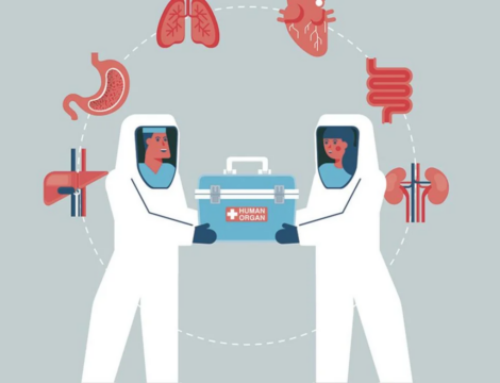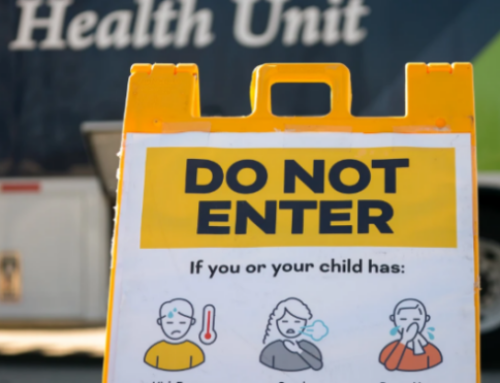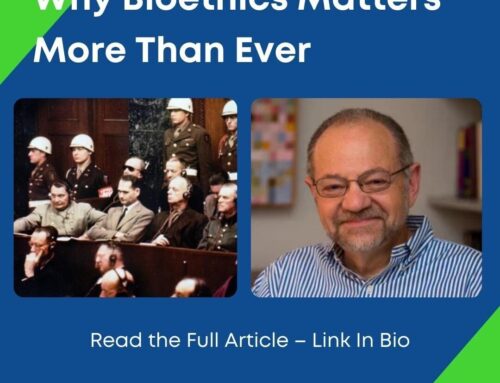The field that came to be known as bioethics in the late 1960’s is an integral part of the liberal international order intentionally developed in the aftermath of the catastrophe of World War II. Following the Russian war in Ukraine there is every reason to believe that the set of norms and institutions that preserved peace in Europe through the first Cold War will be revised according to new assumptions that will structure international relations in a second Cold War. In the second Cold War new alliances will be formed and Russian isolation may resemble that of the period after the Bolshevik Revolution. Bioethics will need to adapt to the conditions of the new Cold War, as it was shaped by the conditions of the last.
In the years immediately following World War II, the most important milestone in medical ethics was a document produced by the judges at the medical war crimes tribunal at Nuremberg, one that posterity has come to call the Nuremberg Code. The Code was a product of the judges’ dissatisfaction with international recognition of ethico-legal standards for the conduct of human experiments. These themes found their way into the foundational documents of the postwar liberal international order. The U.N. Charter (1945) “reaffirmed faith in fundamental human rights and dignity and worth of the human person” and committed member states to promote “universal respect for, and observance of, human rights and fundamental freedoms for all without distinction as to race, sex, language, or religion.” Article I of The Universal Declaration of Human Rights (UDHR, 1948), meanwhile, stated that “[a]ll human beings are born free and equal in dignity and rights. They are endowed with reason and conscience and should act towards one another in a spirit of brotherhood.” These themes run like a red line through the decades since World War II.
Bioethical values not only apply to clinical medicine and research. They have also come to inform and guide public health (e.g., disease surveillance and interventions), economic development (e.g., global pharmaceutical research endeavors and public health programs), and security (e.g., through the laws of armed conflict and the treatment of prisoners of war). These values have been institutionalized in countless advisory bodies that govern biomedical research and practice, from national ethics commissions to research ethics boards for human subjects research to biosafety committees. Amid reports of a brain drain from Russia and its territories, the conditions of ethically acceptable life sciences research in Russia, still a major world power, will be subject to reconsideration. (Notably, the U.S. and the U.S.S.R. cooperated on polio vaccine research and distribution during the first Cold War.) Other entities too numerous to mention have had bioethics as a secondary rationale for their missions, such as the conventions for biological and toxin weapons and for chemical weapons and the World Health Organization itself. These laws and norms, too, have been undermined by threats and demands during the war on Ukraine.
Already certain bioethical principles have been stressed by the global coronavirus pandemic that in itself calls for reassessment of the application of those principles. For example, despite a theoretical commitment to public health and benefit sharing, the disparities between vaccine availability in higher, lower, and middle-income countries are undeniable. In terms of its dominant agenda, however, the thrust of bioethics has been a focus on exotic and philosophical issues, like the implications of edited embryos for human personhood rather than on the requirements for global public health.
As has happened so often in the history of public health–the last time in the late 1910s–an infectious disease crisis and the displacement of millions of Europeans have collided. There is a dynamic relationship between the aftermath of the pandemic and the stresses that will be attendant upon the new Cold War. In the case of bioethics, one of these will be the role of public health surveillance and state power. Some countries, like China, have ratcheted up surveillance measures in response to the pandemic and are unlikely to give them up, as knowledge of locations and social networks can be useful leverage for non-public health security purposes. Other countries, like the United States, have largely rejected such measures but will nonetheless have to deal with questions about the failures of a decentralized public health system in real-time tracking of community spread of a highly infectious respiratory disease.
Almost as soon as modern bioethics became a self-identified field in the midst of the first Cold War, it gained legitimacy as a set of issues, arguments, principles, and concepts that were integrated into public and private policy making. The end of the post-Cold War era will challenge the now-mature field to adapt to a new set of conditions as part of a new global framework.
Read the article here






